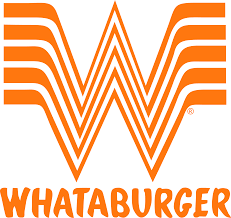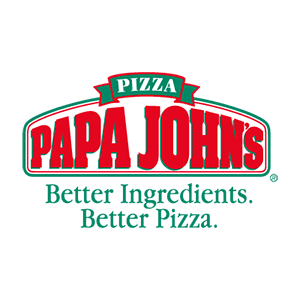Celebrities Who Own Franchises
Celebrities like Mark Wahlberg (Wahlburgers), Patrick Mahomes (Whataburger), and Shaquille O’Neal (Papa John’s) have turned to franchise investments for lucrative business opportunities. These ventures offer brand recognition, established models, and growth potential for high returns.

Table of Contents:
Introduction
In the realm of business investments, franchising has emerged as a lucrative avenue not only for seasoned entrepreneurs but also for celebrities looking to diversify their portfolios. The appeal of franchising lies in its unique blend of brand recognition, established operational models, and the potential for substantial returns. This article delves into the franchise investments of notable celebrities in popular chains like Wahlburgers, Whataburger, and Burger King, offering insights into the financial intricacies and business dynamics of these ventures.
Celebrity franchise owners, from actors to sports icons, have recognized the value of aligning with established brands. These collaborations often bring mutual benefits – celebrities leverage the brand’s established market presence while franchisors enjoy the increased visibility and marketing appeal that comes with a star’s involvement. In this exploration, we will uncover the costs, revenues, and strategic business decisions behind these celebrity-endorsed franchise investments.
Wahlburgers: Mark Wahlberg’s Burger Empire
Wahlburgers, a name synonymous with the famous Wahlberg family, represents more than just a celebrity-endorsed franchise. It’s a testament to the power of combining star power with a solid business model. Founded by Paul, Donnie, and Mark Wahlberg, the first Wahlburgers opened in Hingham, Massachusetts in 2011. Since then, the franchise has expanded to numerous locations across the United States and beyond.
Mark Wahlberg is an acclaimed actor and producer, who co-founded Wahlburgers with his brothers. Known for his Hollywood career, Wahlberg’s venture into the fast-casual dining industry with Wahlburgers reflects his diverse interests and business acumen.
The financial commitment to start a Wahlburgers franchise is substantial. Prospective franchisees can expect an initial investment ranging from $1.14 million to $2 million. This investment covers various costs, including the initial franchise fee of $40,000 to $50,000, construction, equipment, training, and more. Despite the high entry cost, the brand’s recognition and the backing of the Wahlberg name make it an attractive opportunity for many investors.
However, the journey hasn’t been without its challenges. In 2020, Wahlburgers faced a net loss of approximately $1.8 million, with total revenues of around $4 million. These figures reflect the competitive and risky nature of the restaurant industry, particularly in a year marked by global challenges. The ongoing royalty fee stands at 6% of gross sales, a standard practice in the franchise industry, contributing to the operational costs of running a Wahlburgers outlet.
Despite these hurdles, Wahlburgers continues to grow and attract franchisees. Its expansion and the star power behind it make it a unique player in the fast-casual dining sector. Aspiring franchise owners must weigh the costs against the potential rewards, considering factors like location, market trends, and their ability to navigate the complexities of the food industry.
Whataburger: Patrick Mahomes’ Lucrative Choice
Whataburger, a renowned name in the fast-food industry, particularly in the southern United States, has been a lucrative choice for franchise investors like NFL star Patrick Mahomes. Founded in 1950 in Corpus Christi, Texas, by Harmon Dobson and Paul Burton, Whataburger has grown to over 800 locations, with a significant presence in Texas and expanding influence in other southern states.
Patrick Mahomes is the quarterback for the Kansas City Chiefs. He has ventured into the fast-food industry by investing in Whataburger. His decision to open 30 locations in the Kansas City area highlights his entrepreneurial spirit.
The financial requirements to start a Whataburger franchise are significant, reflecting its established brand and proven business model. The estimated total investment ranges from $2 million to $2.5 million, and franchisees are required to have at least $5 million in liquid assets and a net worth of $12.5 million. These requirements ensure that franchise owners have the necessary financial backing to successfully launch and sustain their outlets.
Whataburger franchises have shown substantial profitability, with an estimated average unit volume of $3,539,518 per location. This impressive figure underscores the brand’s popularity and its effective operational model. Additionally, the franchise model of Whataburger allows for potential expansion, with the brand encouraging multi-unit development, which can lead to even greater financial returns.
The success of Whataburger franchises can be attributed to the brand’s commitment to quality, customer service, and a menu that resonates with a broad customer base. The franchise’s growth trajectory and financial performance make it an attractive option for high-net-worth individuals looking to invest in a solid, growth-oriented business.
Burger King: A Popular Choice for Celebrities
Burger King has attracted various celebrities as franchise investors. Notably, basketball icon Magic Johnson has invested in the brand, leveraging his sports fame for business success. Similarly, musician and businessman Jay-Z has been linked to the franchise, showcasing the appeal of Burger King to diverse high-profile investors. These examples illustrate the franchise’s strong pull in the competitive fast-food market.
The financial commitment to start a Burger King franchise is considerable but varies based on location and store type. The standard franchise fee for a 20-year term is $26,250 with the total estimated investment ranging between $1,877,600 and $3,398,600. This investment encompasses costs like construction, equipment, training, and marketing. Burger King also offers options for non-traditional store setups, which can reduce the initial investment to approximately $220,000 – $1,450,000.
The ongoing costs for operating a Burger King franchise include a royalty fee of 5% of monthly gross sales and an advertising fee of 4%. These fees are part of the franchise’s business model, ensuring continuous support from the parent company and alignment with its marketing strategies.
In terms of profitability, the median annual sales for a Burger King franchise stood at around $1,351,000 in 2020. However, earnings can vary significantly based on factors such as location, store size, and management efficiency. While some franchises have reported revenues as high as $4.8 million, others have seen much lower earnings. The potential for profit, coupled with the brand’s global recognition, makes Burger King a compelling option for investors seeking to enter the fast-food industry.
More Celebrities Who Own Franchises
Drew Brees – Various Franchises
Former NFL quarterback Drew Brees, famous for his tenure with the New Orleans Saints, has diversified his portfolio with investments in various franchises, including Dunkin’ Donuts and Walk-On’s Sports, showcasing his business savvy off the field.
Shaquille O’Neal – Multiple Franchises
NBA legend Shaquille O’Neal, known for his dominance on the basketball court, has made significant investments in franchises like Papa John’s and Auntie Anne’s, demonstrating his keen interest in the business world.
Comparative Analysis: Evaluating Franchise Opportunities
When comparing the franchise opportunities of Wahlburgers, Whataburger, and Burger King, it’s evident that each offers unique advantages and challenges. Wahlburgers, with its celebrity backing and premium branding, requires a higher initial investment but offers the allure of being part of a growing, celebrity-endorsed brand. Whataburger, a regional favorite with a strong presence in the southern United States, shows substantial unit profitability, making it an attractive option for investors with significant financial resources. Burger King, a global fast-food giant, offers a more flexible investment range and the potential for high revenues, especially for multi-unit franchise owners.
Each of these franchises has different market positions, growth trajectories, and financial requirements, making it crucial for potential investors to carefully consider their options based on their resources, business goals, and market understanding. The choice of a franchise should align with the investor’s long-term business strategy, location preferences, and management style.
To assist in this decision-making process, we encourage you to use our Franchise Comparison Tool. This tool offers a personalized analysis, helping you compare various franchise opportunities based on your specific criteria and objectives. Whether you’re leaning towards a celebrity-backed franchise like Wahlburgers, a regional powerhouse like Whataburger, or a global brand like Burger King, our tool provides the insights you need to make an informed decision.
Conclusion
The world of franchising offers a fascinating intersection of brand power, entrepreneurial spirit, and investment potential. As demonstrated by the franchise endeavors of celebrities like Mark Wahlberg, Patrick Mahomes, and various Burger King investors, franchising can be a lucrative avenue for those with the capital, business acumen, and strategic foresight to harness the strengths of established brands. Wahlburgers, Whataburger, and Burger King each present unique opportunities and challenges, from high-end celebrity branding to regional dominance and global presence.
For potential franchise owners, the key lies in aligning their investment with their financial capabilities, business goals, and market trends. While the glamour of celebrity-associated franchises might be enticing, it’s critical to delve into the financials, understand the market dynamics, and evaluate the long-term sustainability of these investments. As the franchise landscape continues to evolve, it offers diverse opportunities for investors to build their wealth and leave a lasting mark in the world of business.
Whether you are an aspiring franchise owner or an investor exploring new ventures, the journey into franchising is one filled with potential and promise, provided you navigate it with diligence, research, and strategic planning.





